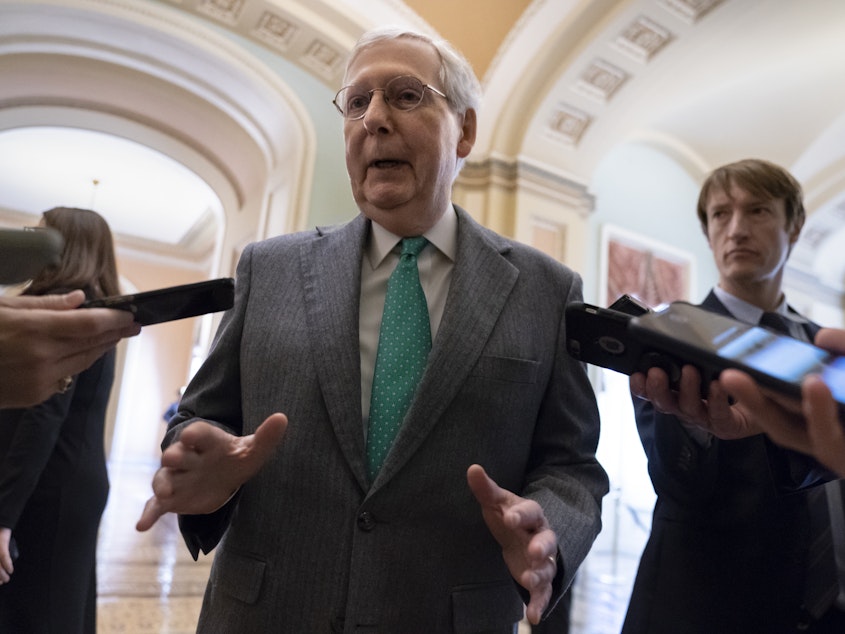Senate Sends Short-Term Funding Measure To President Hours Before Government Shutdown

The Senate passed a temporary spending bill to fund federal agencies, averting a possible government shutdown at midnight Thursday.
The move now sends the measure to President Trump for his signature.
Sen. Richard Shelby, R-Ala., who chairs the Senate Appropriations Committee, said he expects the president to sign it. However, he wouldn't guarantee it.
"I'm sure he'll sign that," Shelby said of the president. "Now, it hasn't been done yet, I want to emphasize that."
The upper chamber voted 74-20 to approve the measure to fund the government through Dec. 20. The legislative measure, known as a continuing resolution, or CR, will extend current funding levels at government agencies.
Sponsored
The bill also includes a 3.1% pay raise for the military and additional funding to support the 2020 census.
The House had approved the continuing resolution on Tuesday in a largely party-line vote with most Democrats backing it and only a dozen Republicans joining them.
This marks the second time this year that Congress has had to pass a short-term funding bill to avoid a possible shutdown.
On Sept. 27, President Trump signed a seven-week spending bill that extended funding for government agencies at 2019 levels until Nov. 21. The measure included some "anomalies," or additional spending, for special programs such as the 2020 census.
Lawmakers signed on to the temporary funding plan with hopes they could work out a broader deal for the entire 2020 fiscal year by this week. However, the spending talks have been derailed by fights over border wall funding and the impeachment inquiry launched by House Democrats in late September. [Copyright 2019 NPR]



